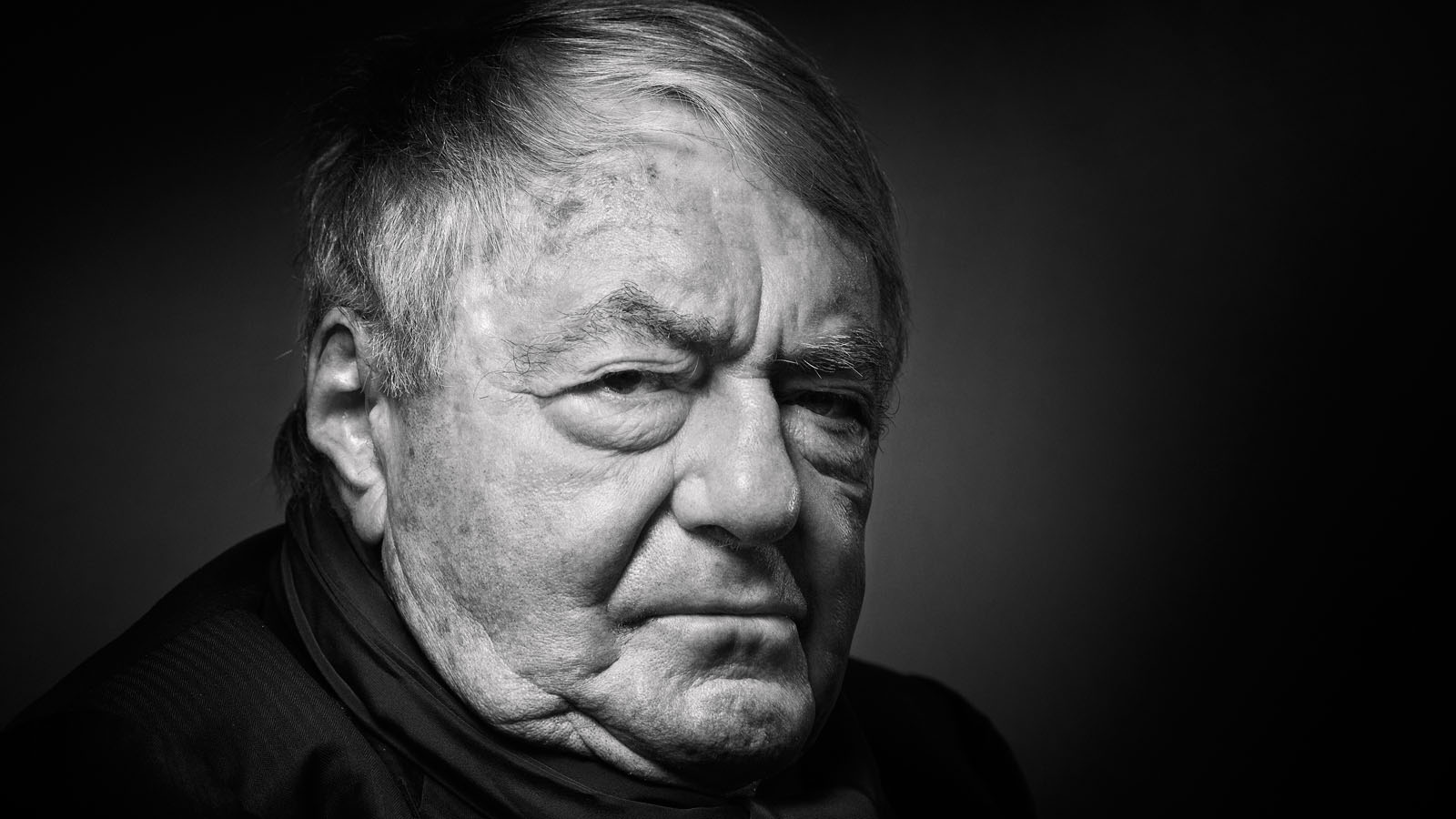Remembering Claude Lanzmann

Claude Lanzmann, who passed away on Thursday at the age of ninety-two, spent over a decade of his remarkably eventful life working on Shoah (1985), his inexhaustible monument to the enduring memory of over six million Jews murdered by the Nazis. When Sight & Sound polled over 200 critics and programmers in 2014 to put together a list of the “Greatest Documentaries of All Time,” Shoah placed second (after Dziga Vertov’s Man with a Movie Camera), and Jonathan Rosenbaum wrote: “There are documentary filmmakers who plant their stakes within existing traditions and those for whom cinema has to be reinvented. Claude Lanzmann clearly belongs in the latter category.”
Besides its running time (over nine hours), the aspect of Shoah most often remarked upon is its utter lack of archival footage. Moving thematically, poetically, rather than chronologically, the narrative is driven by the testimonies of survivors and perpetrators of the Holocaust, and all that is seen are these faces and the Polish landscapes in and around the remains of the concentration camps as they appeared when Lanzmann began conducting his interviews in 1975.
Shoah continues to be one of the most referenced documentaries among critics, who have long used it as a prism through which to understand how historical atrocities are represented on-screen. In the current issue of Film Comment, Eric Hynes has found that the best way in to a review of Wang Bing’s eight-hour documentary Dead Souls is to address Lanzmann’s singular precedent. By “refusing to make the Holocaust tangible in a way the audience craves, [Lanzmann] preserves its appalling scale, its moral unacceptability, even while pursuing its evidentiary explication. He keeps the imagery in the present tense, where the past can’t be comfortably contextualized, its horrors muted by time difference, but rather where its effects are manifold, the horrors implicatively ongoing.”
As Mark Lilla has pointed out in the New York Review of Books, Shoah is also a conscious retort to Hannah Arendt, who argued that “the Nazi experience could be understood, and had to be, since only through understanding can ‘we come to terms with, reconcile ourselves to reality, that is, try to be at home in the world.’” In a short essay, Lanzmann shot back, “All one has to do, perhaps, is pose the question simply, and ask, ‘Why were the Jews killed?’ This shows its obscenity. There is an absolute obscenity in the project of understanding. Not understanding was my iron law during all the years of preparing and directing Shoah: I held onto this refusal as the only ethical and workable attitude possible.”
Shoah was Lanzmann’s second film after Israel, Why (1973), a celebration of the twenty-fifth anniversary of the founding of the country Lanzmann would passionately defend throughout the rest of his life. From the material he shot for Shoah, Lanzmann fashioned further features such as Sobibór, October 14, 1943, 4 p.m. (2001), an account of the 1943 prisoners’ uprising at the camp in Poland; The Last of the Unjust (2013), based on his interviews with Benjamin Murmelstein, a Jewish elder in Theresienstadt; and The Four Sisters (2018), a quartet of documentaries, each telling the story of a woman who survived the Holocaust. But for Daniel Lewis in the New York Times, Lanzmann’s “reputation and perhaps his raison d’être rest on a singular achievement: the film that consumed him for twelve years in his middle age. It was as if a respected but little-known court composer had made a Beethoven symphony.”
The degree to which Lanzmann may have been “little-known” before Shoah is debatable, but the respect was certainly earned. As a teenage communist, he smuggled weapons for the Resistance. After the war, he reported on East Germany for Le Monde, and when he returned to Paris, he fell in with Jean-Paul Sartre and became the lover of Simone de Beauvoir, whom he’d succeed as editor of the influential journal Les Temps modernes. For a time in Beijing, he delivered unofficial communiques between Mao Zedong and Charles de Gaulle, and for a living, he wrote magazine profiles of the likes of Brigitte Bardot and Jeanne Moreau. Reviewing his memoir The Patagonian Hare for the London Review of Books, Adam Shatz writes that “as Beauvoir recognized, Lanzmann was a man of action. He was, he tells us, a courageous fighter in the Maquis, as well as a fearless skier, a daring mountaineer, a natural-born pilot, an author of ‘visionary’ journalism, [and] an athlete in the sack.”
As the New Yorker’s Richard Brody writes, with the premiere of Shoah in New York and its subsequent broadcast on PBS, Lanzmann “became a sudden and crucial public figure whose frequent statements, interviews, and engagements were themselves a part of the history of his times. He bore that mantle solemnly, sternly, combatively.”
For news and items of interest throughout the day, every day, follow @CriterionDaily.



